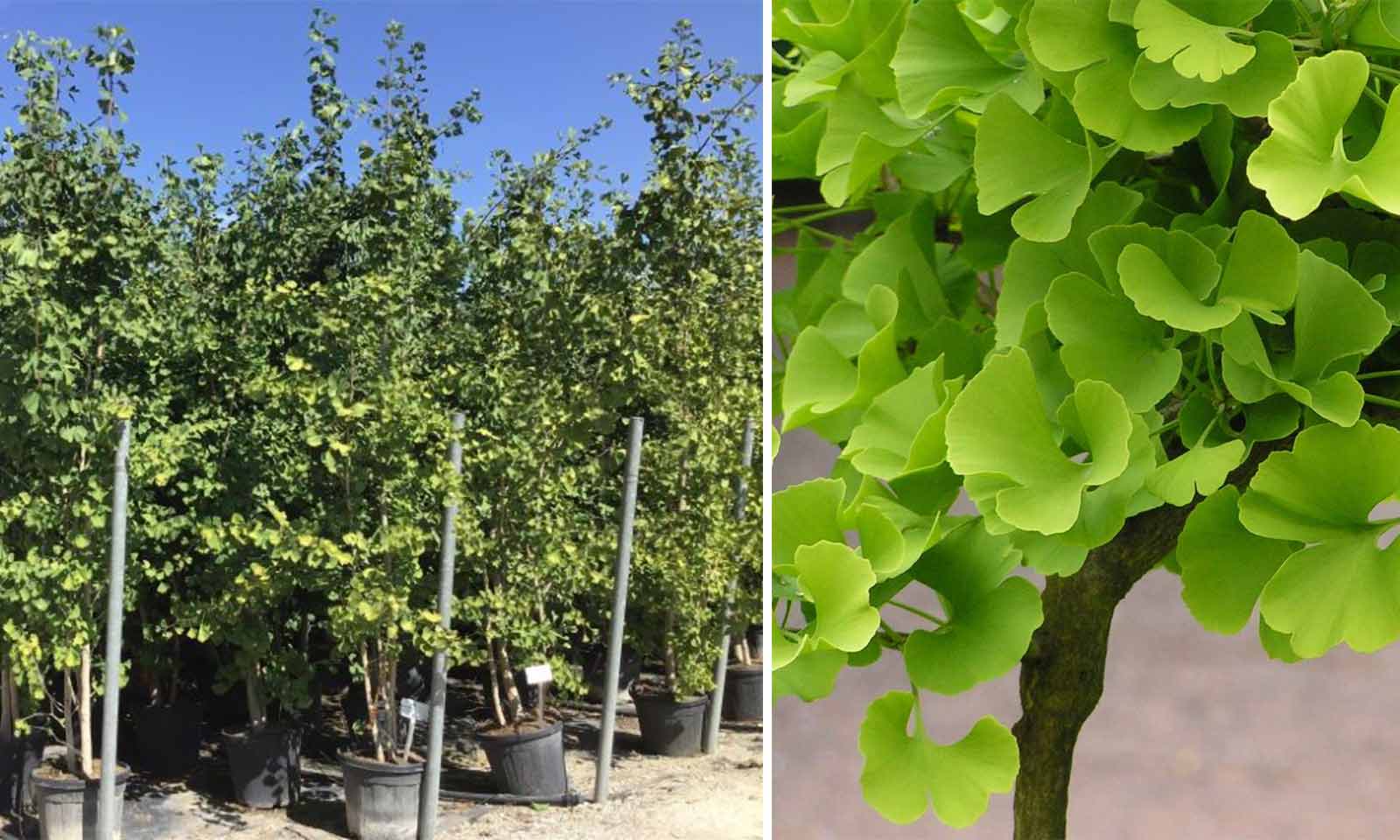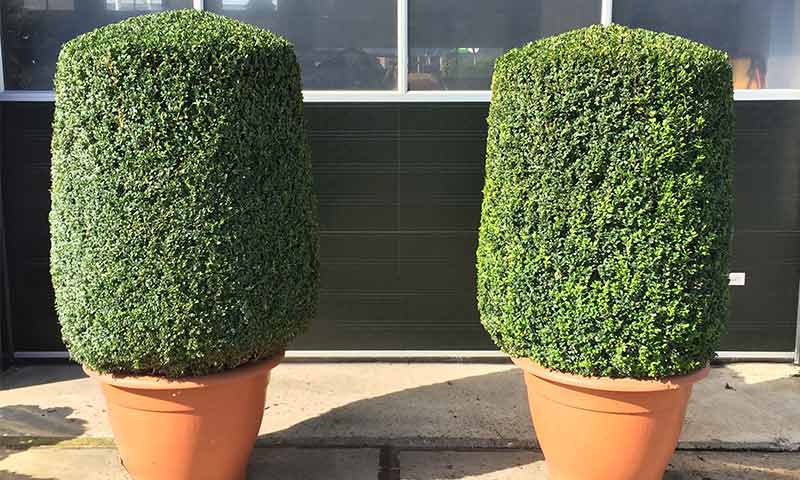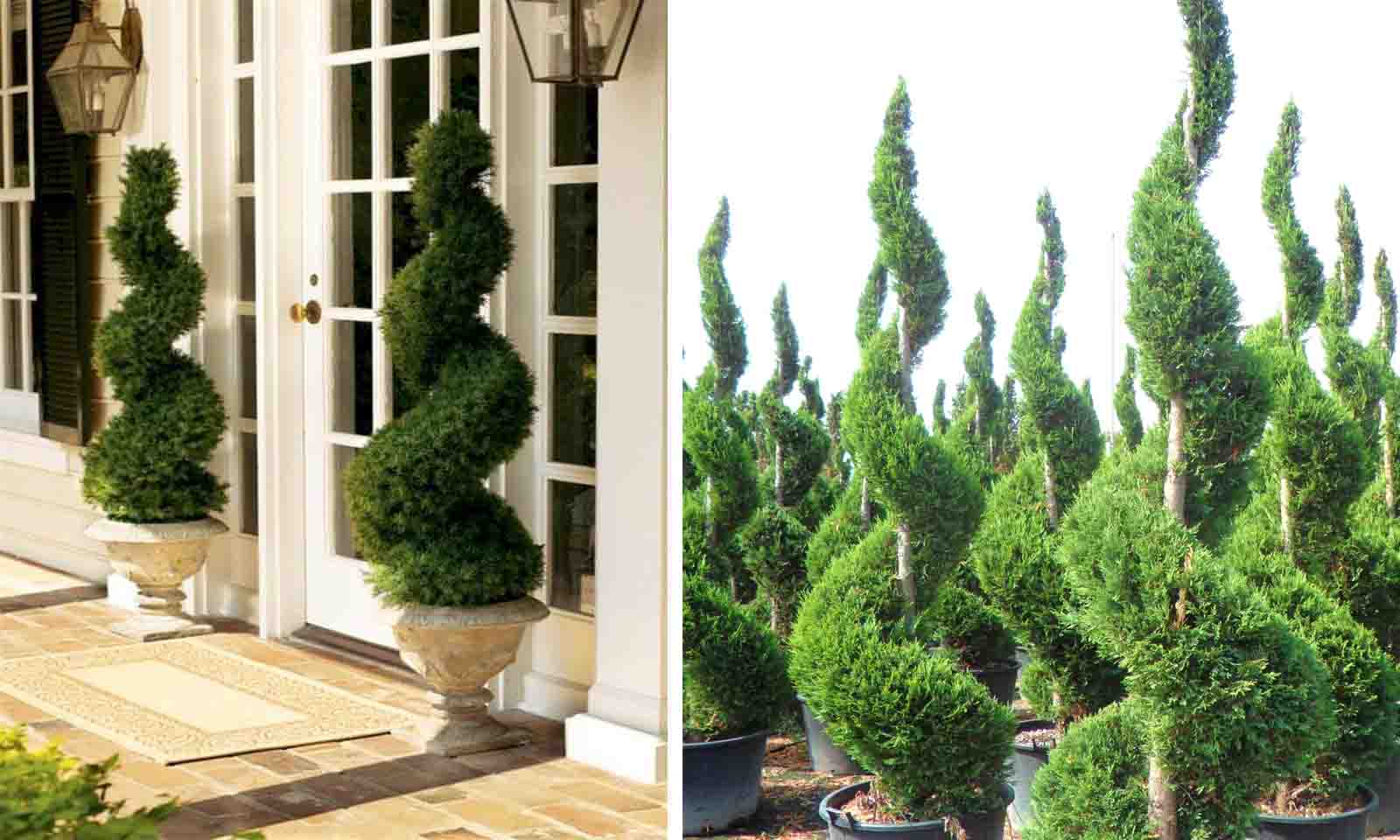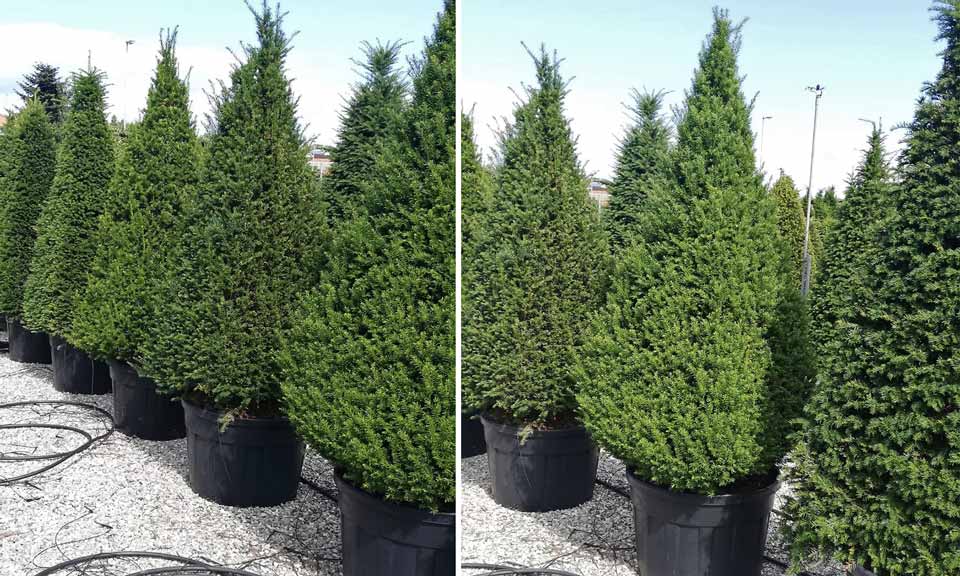Buxus Sempervirens (Common Box) - Cylinder
Evergreen shrub, sometimes a small tree which has dense branches which start from the base. Upright habit, rather narrow in the first years, then spreading out. Green, quadrangular branches when young, round and grey later. Opposite leaves, oval-lanceolate, leathery, slightly notched at the tips, deep, bright green, paler on the underside, 2-3 cm long, 1-1.20 cm wide. Flowers in March-April, not very beautiful but attractive to bees, greenish-yellow in axillary racemes. Fruit: greenish- blue capsules containing seeds. Grows well in any type of soil, even calcareous, as long as it is fertilised and well drained. Tolerates full sun if it is not combined with dry soil. Withstands any type of pruning and it is one of the shrubs most used for hedges, evergreen mazes and topiary sculptures. Together with Taxus Baccata it is one of the most popular plants in formal English gardens.
Latin Name: Buxus Sempervirens
English Name: Common Box, Boxwood
Species: Buxaceae
Genus: Buxus
Foliage Type: Evergreen.
Foliage: Bright Green.
Flower: Greenish-Yellow.
Flowering Period: March-April.
Suggested Location: Outdoor.
Suggested Soil Type: Well-drained. Chalk. Clay. Loam. Sand.
Suggested Exposure to Sunlight: Full Sunlight or Partial Shade.
Suggested Exposure to Weather: Sheltered or Exposed.
Hardiness Rating: High (H6)
Lowest Temperature Tolerance: -20°C to -15°C (-4°F to 5°F)
Suggested Uses: Small gardens. Cultivation in pots. Rock gardens. Groups. Borders. Clipped hedges.
Maintenance: Grows best in well-drained soil in partial shade; can be scorched by sun and strong winds.
Growth Habit: Bushy.
Growth Speed: Medium.
Final Height: 4 m – 6 m (13.1 ft - 19.7 ft)
Final Sideways Spread: 3 m – 5 m (9.8 ft - 16.4 ft)
Delivery Cost: This is calculated based on the total size, weight and quantity of your order, as well as the location of your delivery address. You will see the final price at the Online Checkout Page (before making payment). Our website will automatically calculate the lowest possible delivery price and apply discounts to orders of certain products – giving you the best value delivery every time!
Please note that high-volume orders will decrease your delivery costs significantly by spreading the price across multiple items. Visit our Delivery Policy page for more information.











